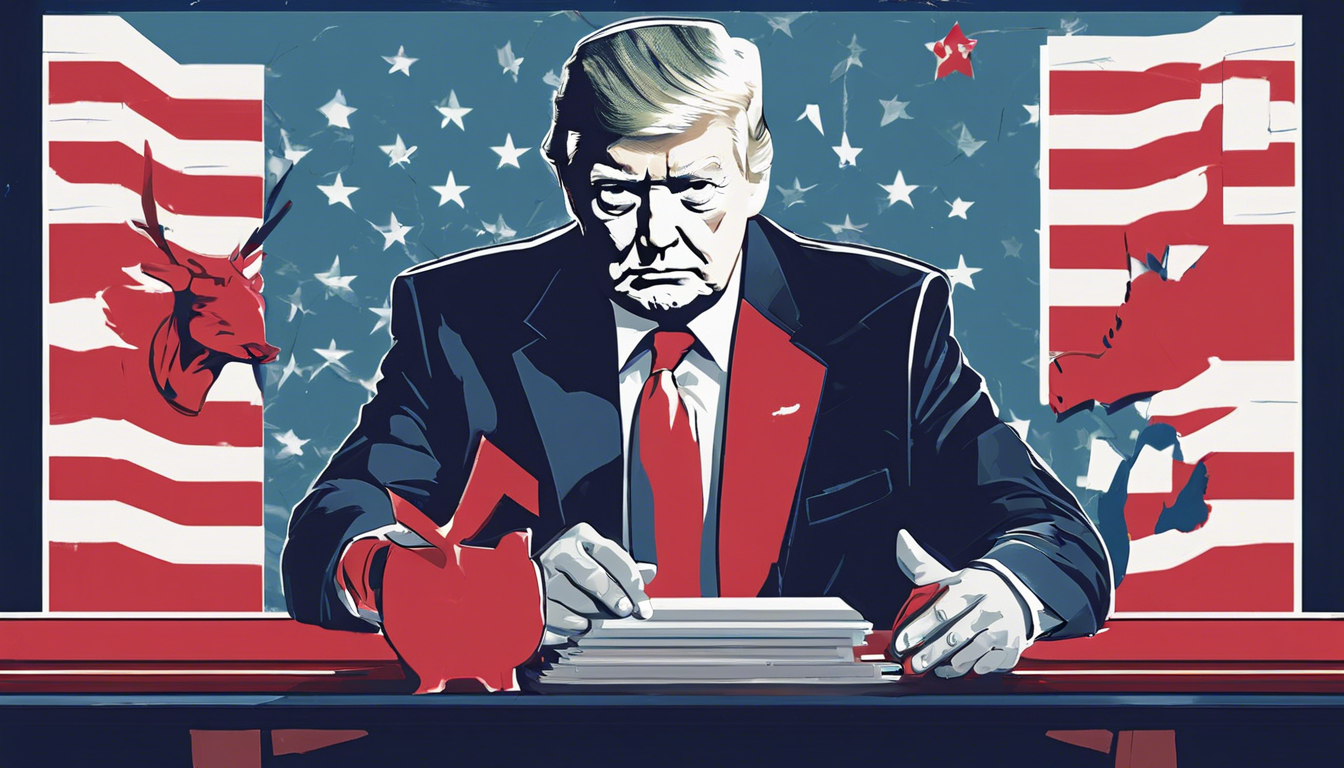In a move that has sent shockwaves through both the financial and political spheres, President Donald Trump has nominated Scott Bessent, a seasoned hedge fund manager and former Chief Investment Officer of Soros Fund Management, to serve as U.S. Treasury Secretary. Known for his astute investment strategies and his past ties with liberal billionaire George Soros, Bessent's nomination has ignited fierce debate among both conservatives and liberals. As Bessent steps into the spotlight, questions arise over his evolution from a Democratic supporter to a key player in the Republican camp, all while holding a treasure trove of financial acumen that could shape America's economic policy. This article explores Bessent's notable career, his complex relationship with Soros, and the broader implications of his nomination on Trump's administration and the U.S. economy.

Key Takeaways
- Scott Bessent's nomination as U.S. Treasury Secretary highlights a significant shift in political support from Democratic to Republican affiliations.
- His ties to George Soros have incited controversy and skepticism, especially among conservative factions.
- Donald Trump believes in Bessent's economic expertise, despite criticism surrounding his previous associations.
Scott Bessent's Background and Rise in Finance
Scott Bessent's rise in the finance world is a testament to his acumen and strategic insight in investment management. Born to a modest background, he emerged through the ranks of the financial elite, ultimately serving as Chief Investment Officer at Soros Fund Management, where he played a pivotal role in navigating the firm through tumultuous financial climates. His significant contributions during historic moments, such as the infamous 'Black Wednesday' in 1992, where he helped secure substantial profits for investors, have solidified his reputation as a formidable figure in the hedge fund industry. While his recent nomination by Donald Trump for the U.S. Treasury Secretary has ignited fierce debates, especially considering his previous affiliation with George Soros—a billionaire investor often vilified by conservative circles—Bessent's multimillion-dollar donations to Republican causes signal a surprising pivot in political allegiance. Critics have raised eyebrows, questioning whether Bessent's deep economic knowledge will truly align with the Trump administration's objectives or if his past connections will compromise his new role. With so much at stake in the current economic landscape, Bessent’s appointment could either signal a refreshing perspective or exacerbate existing partisan divides.
The Implications of Bessent's Nomination for U.S. Treasury
As the nomination process for Bessent unfolds, political analysts are keenly observing reactions from both sides of the aisle. On one hand, proponents of Bessent argue that his extensive experience managing global investments amid crises equips him with a unique perspective necessary to stabilize the U.S. economy in these unpredictable times. They believe that his background in hedge fund management could prove invaluable in navigating the complexities of fiscal policy, particularly as the nation grapples with inflation and rising interest rates. Conversely, critics from the conservative bloc express concerns over Bessent’s past affiliations with Soros, suggesting that his nomination might invite conflicting interests into the Treasury department. This skepticism is rooted in a narrative that positions Soros as a quintessential progressive figure, whose influence on global markets and progressive causes runs counter to traditional Republican values. Such polarizing views indicate that, while Bessent’s financial qualifications are robust, the political ramifications of his nomination may overshadow his capabilities, leading to a labyrinthine confirmation process fraught with ideological battles that could fundamentally impact fiscal policy in the long term.













.png)
.png)
.png)
